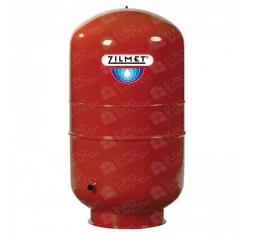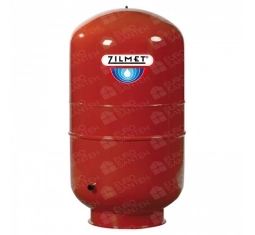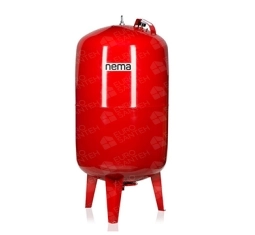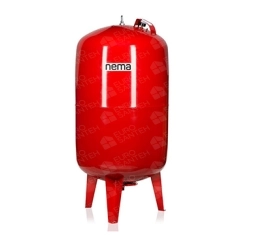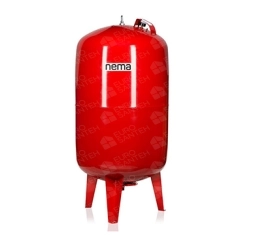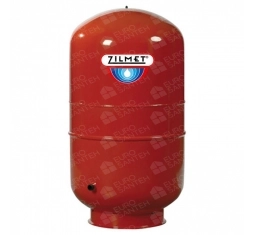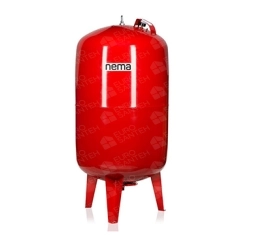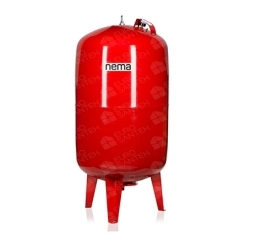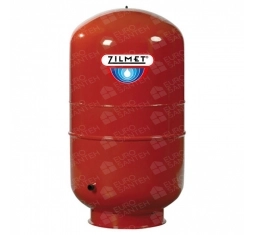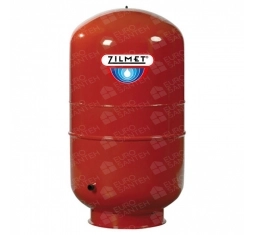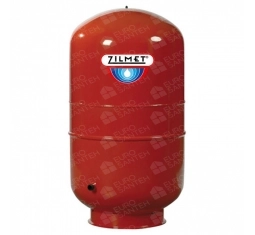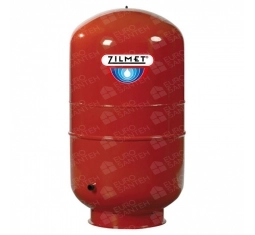Expansion tanks for gas boiler in Chisinau
Expansion tanks are critical components in any heating system, particularly those powered by gas boilers. They play an essential role in maintaining the system's pressure balance, preventing potential damage caused by thermal expansion. In this comprehensive overview, we will delve into the significance of expansion tanks for gas boilers, their key characteristics, benefits, installation, and maintenance procedures.
Importance of Expansion Tanks for Gas Boilers
Gas boilers are widely used in residential and commercial heating systems due to their efficiency and reliability. However, as water is heated in the boiler, it expands. This expansion increases the pressure within the closed-loop system. Without an expansion tank, this pressure can rise to dangerous levels, potentially causing damage to the boiler, pipes, and other components. Expansion tanks absorb this excess pressure, ensuring the system operates safely and efficiently.
Key Characteristics of Expansion Tanks for Gas Boilers
Expansion tanks are specifically designed to handle the thermal expansion of water in heating systems. They consist of several key features that enable them to perform this function effectively:
1. Capacity
Expansion tanks come in various sizes to accommodate different system capacities. For gas boilers, the tank must be appropriately sized to manage the volume of water and the expected expansion. A correctly sized tank will effectively balance the system pressure, preventing excessive pressure buildup.
2. Construction Materials
Expansion tanks are typically made from durable materials like steel or high-grade polymers. These materials are chosen for their resistance to corrosion and ability to withstand high pressures and temperatures. The interior of the tank is often lined or coated to prevent rust and corrosion, ensuring a long service life.
3. Diaphragm or Bladder
Modern expansion tanks often feature a diaphragm or bladder that separates the water from the air. This separation ensures that the air cushion remains intact, allowing for proper absorption of the expanded water. The diaphragm is made from a flexible material that can withstand repeated cycles of expansion and contraction.
4. Pre-pressurized Air Chamber
The air chamber in an expansion tank is pre-pressurized to a specific level, which helps to balance the pressure in the system. This pre-pressurization is crucial for the tank to function correctly and must be adjusted according to the system’s requirements.
Benefits of Using Expansion Tanks
1. Safety
Expansion tanks are crucial for maintaining the safety of heating systems. By absorbing excess pressure, they prevent potential hazards such as pipe bursts, boiler malfunctions, and other pressure-related issues.
2. Efficiency
A well-balanced system operates more efficiently. Expansion tanks help maintain consistent pressure levels, which can enhance the overall efficiency of the heating system. This efficiency translates into lower energy consumption and reduced operational costs.
3. Longevity of System Components
By preventing pressure spikes, expansion tanks reduce the strain on the boiler and other system components. This reduced strain helps to prolong the lifespan of these components, minimizing maintenance and replacement costs over time.
4. Noise Reduction
Excessive pressure in a heating system can lead to noisy operation, including banging and knocking sounds in the pipes. Expansion tanks help to mitigate these noises by maintaining steady pressure levels.
Installation of Expansion Tanks for Gas Boilers
Proper Placement
The correct placement of an expansion tank is essential for its effective operation. Typically, expansion tanks are installed on the supply side of the heating system, near the boiler. They should be positioned vertically to ensure proper function of the diaphragm or bladder.
Connection
Expansion tanks are connected to the system via a threaded pipe fitting or flange. It’s important to ensure all connections are secure and leak-free. Using a proper sealant and following manufacturer guidelines can help achieve a reliable connection.
Pressure Adjustment
Before putting the system into operation, it is crucial to check and adjust the pre-pressurized air chamber to match the system’s requirements. This pressure adjustment ensures that the expansion tank can effectively manage the system’s thermal expansion.
Maintenance of Expansion Tanks
Regular Inspections
Routine inspections are vital to ensure the expansion tank remains in good working condition. This includes checking for signs of wear, corrosion, or leaks. Regular inspections can help identify issues early, preventing more serious problems.
Pressure Checks
Periodically check the pressure in the expansion tank to ensure it remains within the specified range. This involves measuring the air pressure in the tank’s air chamber and adjusting it if necessary. Maintaining the correct pressure is key to the tank’s effective operation.
Diaphragm or Bladder Replacement
Over time, the diaphragm or bladder inside the expansion tank may wear out and require replacement. This component is crucial for the tank’s function, and replacing it as needed ensures the tank continues to operate effectively.
Draining the Tank
In some cases, it may be necessary to drain the tank to remove sediment or to perform maintenance. Properly draining and refilling the tank helps maintain its efficiency and longevity.
Conclusion
Expansion tanks for gas boilers are indispensable for maintaining the safety and efficiency of heating systems. They play a vital role in absorbing the thermal expansion of water, preventing pressure buildup, and protecting system components. Proper selection, installation, and maintenance of expansion tanks are crucial for ensuring the long-term performance and reliability of gas boiler heating systems. By understanding their importance and following best practices, homeowners and technicians can ensure a comfortable and safe heating experience.
